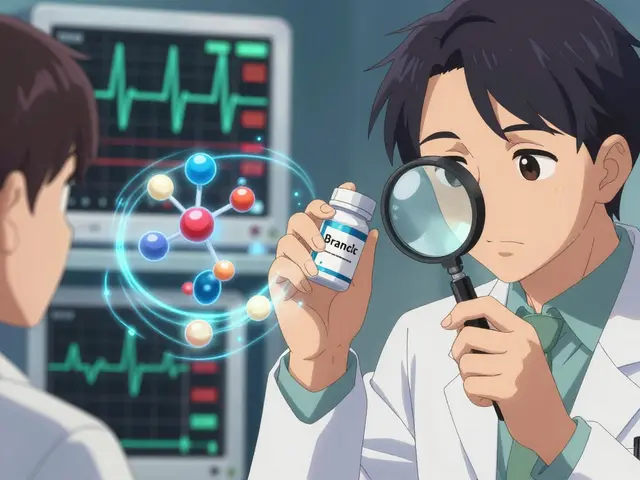Premenstrual Syndrome (PMS): Clear Signs and Real Relief
PMS shows up for many people in the week or two before a period. You might notice mood swings, bloating, sore breasts, cramps, tiredness, or trouble sleeping. Symptoms vary a lot—some months are light, others hit hard. The good news: small changes can make a big difference.
What causes PMS?
Hormone shifts during the menstrual cycle are the main cause. Estrogen and progesterone change after ovulation and that affects brain chemistry, sleep, and fluid balance. Stress, poor sleep, and certain diets can make symptoms worse. Genetics and past mental health issues also raise risk for stronger PMS or the more severe PMDD (premenstrual dysphoric disorder).
Practical steps to feel better
Track your cycle and symptoms for two or three months. Use a calendar or an app. Noticing patterns helps you plan work, social events, and treatment. Try these simple fixes first:
- Move daily: 20–30 minutes of brisk walking or light cardio eases cramps and lifts mood.
- Sleep: Aim for consistent sleep and 7–9 hours a night. Poor sleep makes every symptom worse.
- Cut back on salt and caffeine in the days before your period to reduce bloating and breast soreness.
- Eat balanced meals with whole grains, lean protein, and vegetables. Small, frequent meals often help mood swings and low energy.
Supplements can help some people. Calcium, magnesium, and vitamin B6 show modest benefits for cramps and mood when taken daily. Talk to your doctor before starting supplements, especially if you take other meds.
If pain is the main issue, over-the-counter pain relievers like ibuprofen or naproxen taken at the first sign of symptoms often work well. For severe mood swings, irritability, or depression linked to the cycle, doctors sometimes prescribe short-term antidepressants (SSRIs) or hormonal birth control to smooth hormone fluctuations.
Behavior strategies matter too. Try simple relaxation: 10 minutes of deep breathing, a short walk, or a quick stretching routine when mood drops. Avoid alcohol when you’re feeling down—it's a mood trap and worsens sleep.
When should you see a doctor? If PMS stops you from doing daily tasks, starts to affect your relationships, or you have suicidal thoughts, get medical help right away. Also see a provider if symptoms are new, very severe, or don’t improve with basic changes. A healthcare professional can check for other causes (thyroid issues, vitamin deficiencies) and discuss treatments like medication or counseling.
PMS doesn’t have to rule your month. Track symptoms, try targeted lifestyle fixes, and ask for medical help when needed. Small, consistent steps often give real relief—so you can get back to normal faster each cycle.

Navigating Relationships and Communication During Premenstrual Syndrome
Navigating relationships and communication during premenstrual syndrome (PMS) can be quite challenging, as the emotional and physical changes can affect our mood and interactions. It's essential to be open and honest with our partners and loved ones about our needs during this time. Actively listening and being understanding of each other's feelings can help maintain a healthy connection. Practicing self-care and finding healthy coping mechanisms can also alleviate some of the stress related to PMS. Ultimately, patience, empathy and communication are key elements in maintaining strong relationships during these difficult moments.




